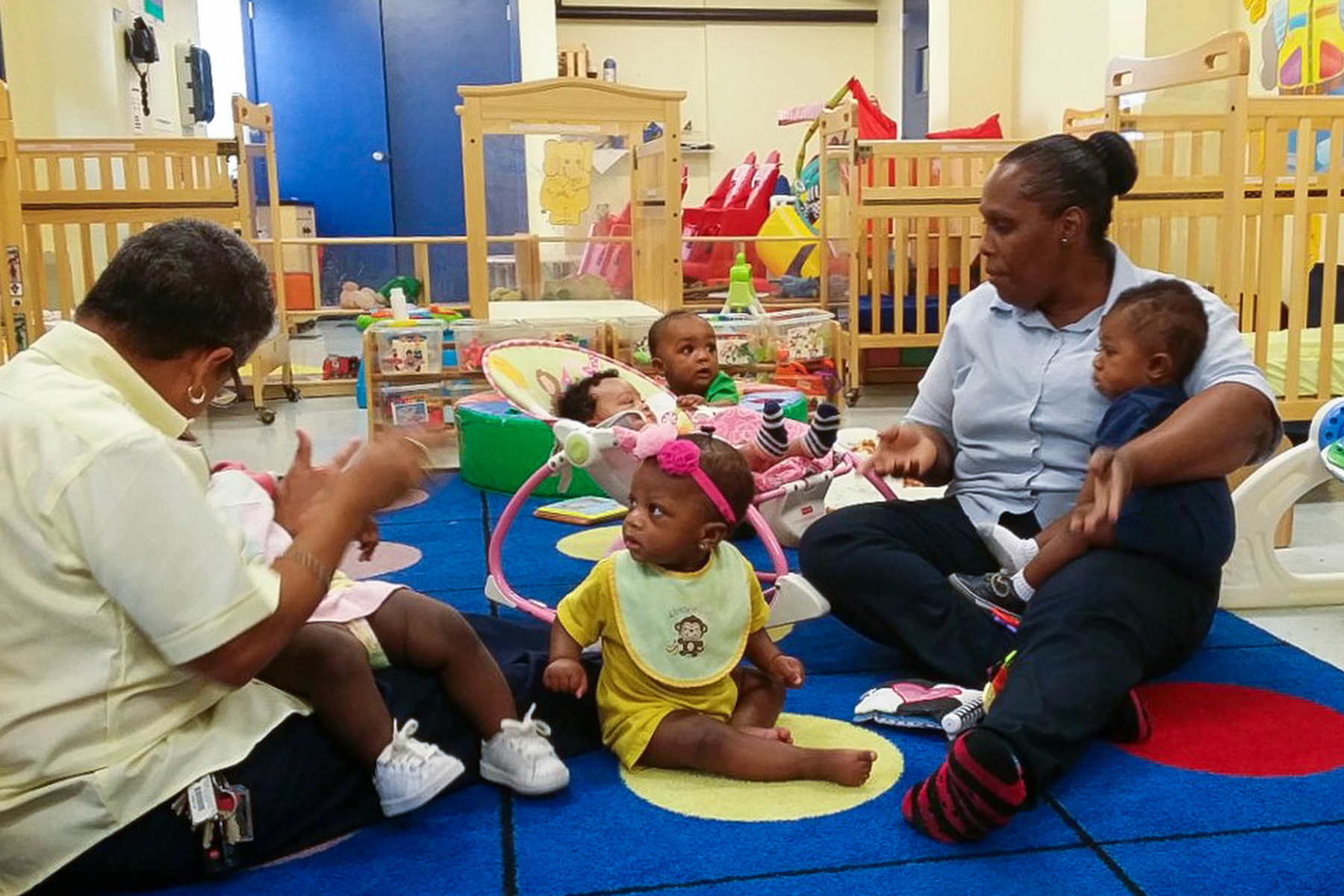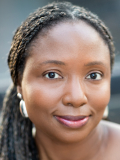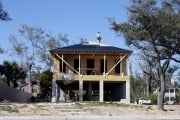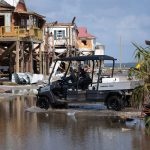When Hurricane Katrina struck the Gulf Coast 20 years ago this week, Rochelle Wilcox had no evacuation plan. She didn’t even know a storm was coming. But as word spread that the cyclone was heading for New Orleans, she and her husband turned on the news, catching an interview with a Mississippian who lost his wife to the floodwaters while trying to save his son.
“We can’t take that chance,” Wilcox’s husband told her. “We have two sons. We just need to leave.”
In the black of night, they fled shortly before the hurricane destroyed their Lower Ninth Ward home.
“We had 11 feet of water in our house,” Wilcox said. “Our house was right by the levee, so we lost everything.”
That included the early learning center she ran from her home. After regrouping with her family in Houston for several months, she returned to her native New Orleans, focused on rebuilding her life and her commitment to early childhood education.
Not quite a year after Katrina forever changed her hometown, she opened Wilcox Academy of Early Learning, one of the rare early education centers open after the storm.
Before Katrina, about 275 licensed centers operated across New Orleans, according to Agenda for Children, the state’s first child care resource and referral agency. But by early the next year, only 38 had reopened.
-
Read Next:
The dearth of early childhood education options left families who wanted to move back to the storm-ravaged city unable to do so because they needed care for their children while they returned to the local workforce. Moreover, it imperiled the future of New Orleans’ youngest residents, given the research that early education provides children with academic and social skills that set them up for success in K-12 schools, higher education and in life.
“Our early educators really invest in these little ones to make sure that they’re learning language skills, how to regulate their own behavior, how to get along with others,” said Libbie Sonnier, CEO of Louisiana Policy Institute for Children, a nonprofit that supports policies related to early childhood development. “All the things that you need to learn to be a good compassionate human and a good student, you learn in early childhood.”
In the 20 years since Hurricane Katrina, educators and advocates haven’t just worked to rebuild New Orleans’ early childhood ecosystem — they’ve reimagined it. Their efforts have led to higher standards, better training, more pay and greater investments in this critical infrastructure.
For Wilcox, being an early childhood educator was a calling, not a job. When she, her husband, two small children and their dog crowded together in a Federal Emergency Management Agency (FEMA) trailer after returning to New Orleans, they were in desperate need of a brick-and-mortar residence. But while touring one property, Wilcox kept visualizing it as the early learning center it had been before its conversion to an apartment.
As the realtor showed them the first bedroom, Wilcox thought, “Oh, my God, this could be an infant class.” When they entered the second bedroom, her imagination kept going. “Oh, my God, that could be a toddler classroom.” Her husband, simply focused on surviving, was dismissive at first. “Right now is not the time,” he said. But two months later, he returned to the property, having liquidated his 401(k) to put down first and last month’s rent and a deposit on it. “You go do this,” he told her.
On July 31, 2006, Wilcox Academy opened with slots for 34 children. Just over two weeks later, enrollment was at capacity. The first families to sign up were essential workers — police officers, sheriff’s deputies and health care personnel — helping the Crescent City recover.
“People were clamoring for not only care, but high-quality care,” Wilcox said.
Often, they were doing so with little stability elsewhere in their lives in Katrina’s aftermath.
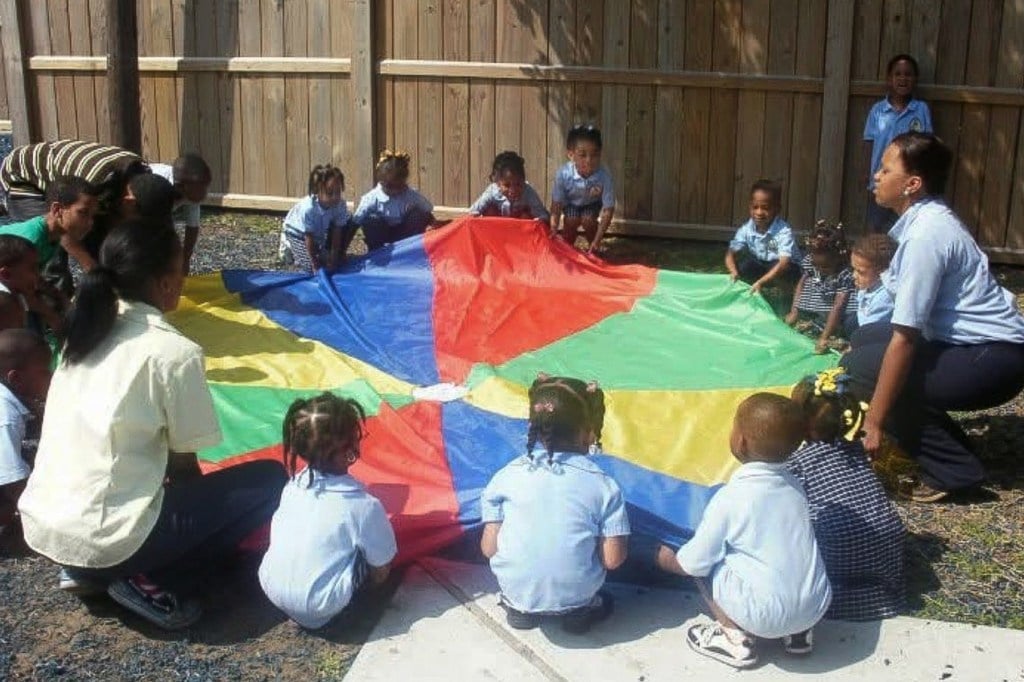
“If you were lucky enough to have a house, you didn’t have a job,” said Teresa Falgoust, director of data and research at Agenda for Children. “If you were lucky enough to have a job, you didn’t necessarily have a house. And if you were lucky enough to have both, you didn’t have a place to send your child.”
All the while, early education providers faced immense challenges of their own. This group of largely Black women, like Wilcox, owned learning centers that were financially shaky before the storm. Afterward, they contended with damaged facilities, insurance company disputes and unscrupulous contractors. And the public systems designed to support the providers were fragmented, Sonnier said, spread across the state’s Department of Children and Family Services (DCFS), Department of Education and Department of Health.
Agenda for Children became an unofficial hub for families seeking early childhood education options. With reduced staff — many had lost their homes to the hurricane, some even swimming to the Superdome immediately following the storm — the nonprofit used paper directories to track which early learning centers were open and to set up makeshift centers in shelters. As the months progressed, they grew concerned about how the limited access to early education and the chaos that followed the hurricane were affecting children.
“In the immediate aftermath, everybody was living in FEMA trailers,” Falgoust said. “I remember some of the folks that were working in early intervention saying, ‘We think we’re seeing a lot of kids having delays meeting the walking milestone because they’re in these spaces where they can’t even walk. There’s not enough room for them to crawl around.’”
Moreover, fears mounted about how the chronic stress of the adults around them could affect infants and toddlers well beyond the recovery period, according to Jen Roberts, CEO of Agenda for Children.
“Stress and trauma at the adult level has such a profound impact on a child’s development because their brains and their bodies are still developing and because they have to rely so much on caregivers for safety,” Roberts said. “Chronic stress can alter how connections in the brain are made. It affects your hippocampus, which affects memory, which affects learning. It’s your prefrontal cortex as well because it affects your regulation and your reasoning.”
The potentially devastating repercussions to Hurricane Katrina’s youngest survivors made it imperative to rebuild the early education ecosystem with haste. But no official entity guided this process or declared that doing so was urgent.
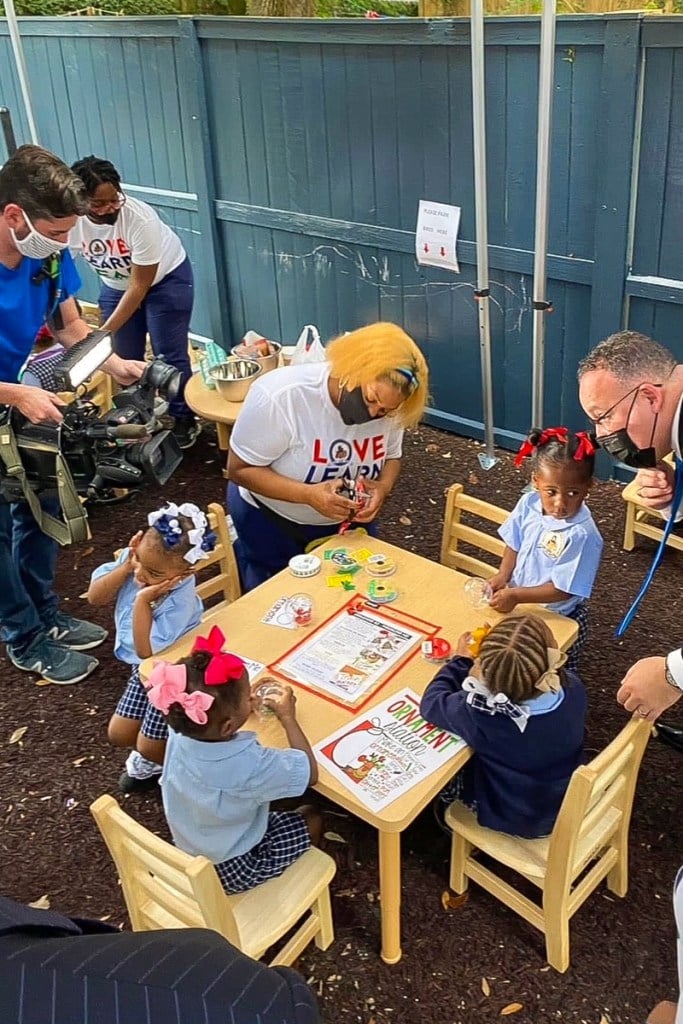
“There wasn’t a coordinated government response in the way that the government is responsible for making sure that every child has a free and fair public education,” Falgoust said. “K-12 education is a public good. We didn’t do a great job at rebuilding schools immediately, but everybody in the city knew we needed to rebuild the schools, and there were public entities responsible for doing that and planning that and figuring that out. There just wasn’t a parallel in the early care and education space.”
Enter Agenda for Children, which led the way by partnering with a coalition of organizations, including United Way of Southeast Louisiana, Louisiana State University AgCenter, the Children’s Defense Fund and DCFS, to form the Greater New Orleans Rebuild Child Care Collaborative. With the W.K. Kellogg Foundation as its first major funder, the collaborative provided direct rebuilding assistance to early learning centers in New Orleans and St. Bernard Parish.
In the 12 years after Katrina, the Kellogg Foundation invested $107.7 million in New Orleans.
“The W.K. Kellogg Foundation, working with local leaders and providers, recognized early that investing in early learning was both a response to immediate human need and a chance to build something stronger for the future,” said Rhea Williams-Bishop, director of New Orleans and Mississippi programs for Kellogg, in a statement to The 19th. “Those early investments helped stabilize centers, support educators and seed a new system, one led by families and providers themselves.”
Wilcox directly benefited from the Kellogg Foundation funding, purchasing a building that allowed her to increase her academy’s capacity to 85 students.
“Unlike others who were doing things around workforce or housing, Kellogg was squarely focused on early care and education, which was a breath of fresh air, because as an early learning center provider, you feel invisible,” Wilcox said.
After years of early learning providers relying largely on grassroots and philanthropic efforts following Hurricane Katrina, a seismic swing occurred in 2012. Louisiana passed Act 3, which unified the state’s early education programs under the Louisiana Department of Education. “If you felt the ground shift, it was because we passed that thing,” Sonnier joked. From there, a coordinated enrollment system and common quality standards were developed, along with a statewide network of early learning centers overseen by local lead agencies.
Agenda for Children became the lead agency for Orleans Parish.
Under Act 3, early learning centers receiving public funds were required to undergo evaluations, use statewide learning standards and ensure head teachers were credentialed. But the mandate was essentially unfunded, and confusion about its accountability system led providers to mobilize, Wilcox said.
“For the most part, providers stay in a silo, like they’re just trying to keep their doors open,” Wilcox explained. “They are wearing multi-hats: They’re the cook, they’re a teacher, they’re the janitor, they’re the social worker. … But when that came out, we started talking.”
Early education providers had struggled for years, so the state requiring them to meet new, challenging standards felt like an injustice. Having received little assistance from the state and other entities because she ran a for-profit center, Wilcox often didn’t earn enough to pay herself a salary. Many early education teachers averaged poverty wages, their work to develop young minds viewed as “babysitting.”
“Our teachers are ignored,” Wilcox said. “They are invisible, they are underpaid, and they are literally building the brains of all of us. In those first 1,000 days when the brain is firing off, when those synapses are at its highest, we are the brain architects of humans.”
In 2020, early education providers in New Orleans and nationally faced the same crisis: the COVID-19 pandemic. Lockdowns threatened to decimate the early learning industry. Many centers shut their doors during this period, but even those that stayed open saw attendance plummet.
“We went from sending a letter out to families saying, ‘Hey, we should be back open in about two weeks,’ to some centers being closed five, six, seven months,” Wilcox said.
Providers began weekly conference calls to cry, vent, exchange information and problem solve. Before long, a call that started with five people multiplied to over 300 providers from across the state, Wilcox said. The venting sessions turned into advocacy, with the educators who took part detailing their challenges to make data-driven recommendations to the Louisiana Department of Education and related entities. Ultimately, this effort shaped how Louisiana distributed federal relief funds; the state devised plans to reopen early childhood education and K-12 schools.
“We wanted to make sure that the powers that be knew that we had power,” Wilcox said. “One of our mottos from the beginning was, if we don’t have a seat at the table, we’re on the menu.”
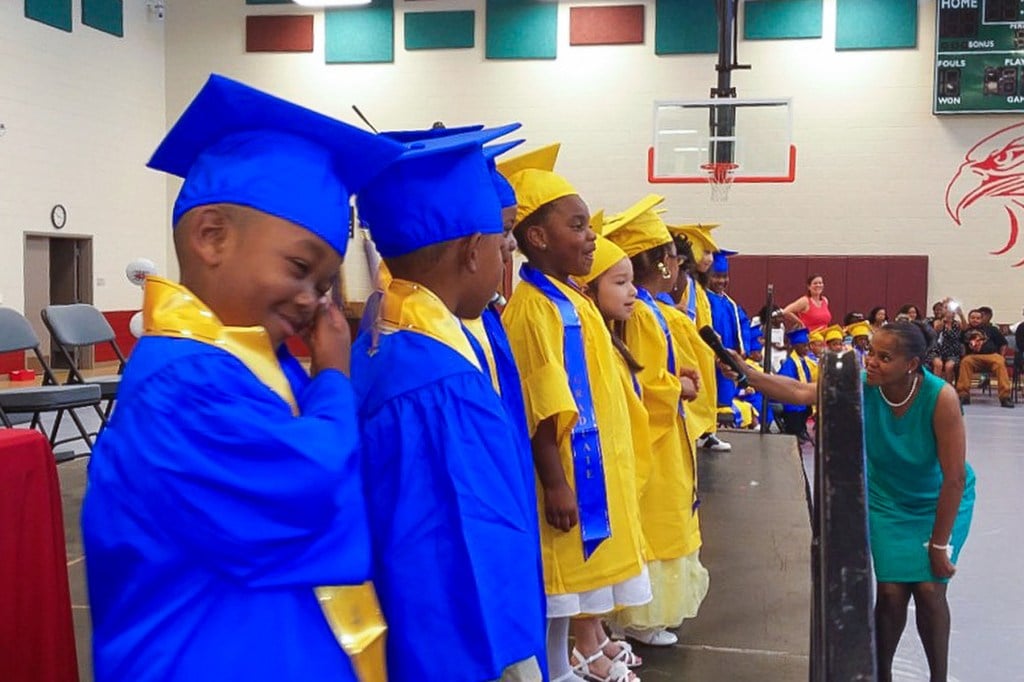
For Providers By Providers, which Wilcox co-founded in 2021 with early childhood education provider Kristi Givens, was a direct outgrowth of this activism. Through advocacy, business coaching, workforce apprenticeships and networking, the organization supports publicly funded early learning centers across Louisiana.
“Some of our providers have never looked at a budget,” Wilcox said. “I was that way. I didn’t even know what a budget was. I thought that was for big business. So what we have been able to do is go in and show them how to do a budget. Institute that information, help them streamline their budget. See what their waste is.”
Through its peer-to-peer business coaching program, For Providers By Providers has not only helped participants manage their finances but increase their revenues, according to Wilcox. Now these providers can finally pay themselves a salary, she said.
Well after Hurricane Katrina, the advocacy that started then has continued to influence how New Orleans prioritizes early learning. Take the property tax millage that voters backed in 2022 to fund early care and education for infants and toddlers. The first of its kind in Louisiana, the millage generates $21 million annually, with matching state funds that amount to a $42 million annual investment.
Agenda for Children administers the funding, which has expanded the “City Seats” program that gives eligible Orleans Parish families access to free, high-quality early childhood education five-fold — from 200 to over 1,000 children. The monies also provide wraparound services such as mental health consultations, health support through a local hospital system, social work support and extensive professional development for teachers.
“A city with no children has no future,” said Roberts, quoting Agenda for Children’s late founder, Judy Watts. The historic millage stands out as a commitment to the first 1,000 days of a child’s life, early educators say, recognizing that they are gravely important.
Due to the millage, Wilcox said, early learning centers have been able to pay teachers several dollars more than New Orleans’ living wage of $16.01 hourly. She pays her teachers up to $21.

Support The 19th’s ambitious plans
As part of our three-year strategic plan, we’ll keep showing up in the way you’ve told us you need us to: as your relatable guide to an unequal nation. Your support will help drive our plan forward.
“We’ve seen them buy homes, buy a car for the first time, take their children on vacation,” Wilcox said. “None of these are luxuries. It is a right that they should be able to do this.”
Even after the millage, early childhood education providers and their advocates have continued to mobilize, showing up to the state capitol in 2023 for a “Day Without Childcare” rally that brought out nearly 1,000 parents, providers and children. They successfully advocated for $87 million in new state funding, and while they faced a $9 million cut the following year, “We were able to maintain the $78 million in 2025,” Wilcox said. “And that’s because we showed up to the capitol and said, ‘Hey, we are here.’ We hear from other legislators… ‘Oh, no, we’re not messing with them because they are a powerful coalition.’”
While unprecedented gains have been made, New Orleans’ early education landscape has not completely recovered from Hurricane Katrina. The city currently has 152 early learning centers, according to Agenda for Children, far below the 275 that existed prior to the disaster. That figure also reflects the fact that birth rates in the city and state have dropped in the past decade.
Still, the wait list for child care assistance in Louisiana hovers around 3,500 families, according to Sonnier.
Advocates also continue to teach the public about the importance of early childhood education and the professionals who undertake such work. Significantly more 4-year-olds than children ages 0-3 are enrolled in early learning in Louisiana, according to Sonnier, indicating families may not understand how critical this time is in their children’s lives.
For Wilcox, the insinuation that early learning is merely day care stings, especially because it was a key component in New Orleans’ hurricane recovery.
“It is brain development. It is nurturing,” she said. “We are the foundation of the infrastructure where everything else is built upon.”
